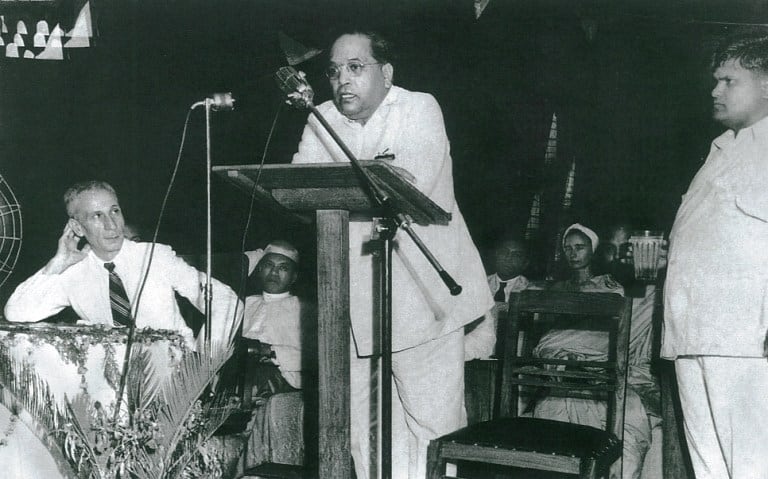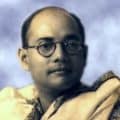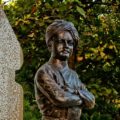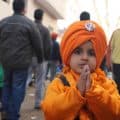Ambedkar Jayanti has been declared as a national public holiday for the last five years. The day is observed to honor the contributions of Dr. Bhimrao Ramji Ambedkar. Dr. Ambedkar Jayanti is celebrated annually on 14th April. The contributions and the massive importance that Dr. Ambedkar has on the history of India are indescribable. The slow descent of the man from the field of education to politics is noteworthy. He was also the first Indian to achieve a doctorate in economics. His birthday, Ambedkar Jayanti, is celebrated to pay tribute to his contributions for the country.
He was a prolific economist and a terrific social reformer. He dreamt of a better India and continuously struggled to achieve his dreams. He studied Buddhism religiously and converted to Buddhism in 1956. He died on December 6, 1956, peacefully. Several films and biopics have attempted to portray the life of Dr. Ambedkar earnestly. But, everything pales in comparison to the actual man who achieved so much even when the conditions were strife.
An insight into the background of Dr. Ambedkar
Ambedkar had to fight through a rigorous and vicious caste system that was ever ready to snatch away his rights of education. Being born as a Dalit proved to be extremely difficult for young Ambedkar. He was often mistreated which is easily reflected in some of his writings. Being granted a scholarship changed life for Ambedkar and he went to the United States for further education. He also completed his post-graduation and worked on his thesis at the London School of Economics. He was an avid reader and had the mindset to consume as much knowledge as possible.
Contribution of Dr. Ambedkar
Dr. Ambedkar contributed immensely and helped shape the future of India. He laid the foundation for some of the most noteworthy social reforms. Some of his contributions are:
Reserve Bank of India
Dr. Ambedkar displayed his skill as an economist and wrote various books on economics. The ideas and thoughts that he gave to the Hilton Young Commission laid the foundation of the Reserve Bank of India.
Dr. Ambedkar thoroughly voiced his disagreement regarding giving Jammu and Kashmir a special status. He wanted Jammu and Kashmir to have the same power as that of the rest of India.
Constitution of India
The hard work and research for drafting the Indian Constitution fell on the capable shoulders of Dr. B. R. Ambedkar. He was appointed as the Chairman of the Constitution Drafting Committee. The lengthy nature of the Indian Constitution is an attribute of his extensive research on various social issues. He wanted to include all possible ways and methods to improve the societal conditions by legal means. He also implored for the reservation of jobs for the lower castes n the civil services. He wanted all the castes of the Indian society to progress on an equal level and make sure that no one is left behind. The Constitution of India came into effect on November 26 in 1949. The role that Dr. Ambedkar played in framing our Constitution is unparalleled and cannot be questioned.
Untouchability
Bhimrao Ramji Ambedkar struggled all his life due to his poor social status. He did not want that for others. He advocated the fights against untouchability and differences in castes. He fought legal battles against the oppressive caste system and aim to provide equal opportunity for everyone. This is also the reason why he introduced the system of reservations in the Indian Constitution. Although not an overly aggressive man, Dr. Ambedkar did not shy away from launching any active movements when needed. He even aimed movements that protested against the unjust law of the lower castes not able to enter Hindu temples. He aimed to eradicate the notion of untouchability from society.
Women rights and other contributions
The skewed view of the society regarding women greatly troubled Dr. Ambedkar. He immensely opposed the injustices that were meted out to the women. He even resigned from his prestigious position in the Union Cabinet to portray his deep dislike when the government refused to pass the Hindu Code Bill.
Ambedkar was also behind the idea of constructing huge dams that would immensely help the public. It could be used not only to store water but also to reduce the huge risk of floods and prevent the destruction of thousands of life and property.
Celebration of Ambedkar Jayanti
Dr. Ambedkar left a lasting impression on the Indian culture. His birthday, also known as Ambedkar Jayanti, is celebrated by people irrespective of caste, religion, or color as Ambedkar Jayanti. The President of India along with the Prime Minister and other national officials pay tribute and acknowledge the contribution of Dr. Ambedkar at his statue on the occasion of Dr. Ambedkar Jayanti. This statute is located at the Indian Parliament in New Delhi. Processions are carried out in his honor. A large surge of people visits the local statutes along with a lot of excitement and preparations. Major processions are witnessed on Ambedkar Jayanti when his followers carry it out at the Deeksha Bhoomi in Nagpur and the Chaitya Bhoomi in Mumbai.
Legacy of Dr. Ambedkar
The legacy left behind by Dr. Ambedkar is impossible to measure. He organized and protested movements for Dalits to help their socio-economic position in society. He was particularly appalled by the mistreatments of the downtrodden people in society and seek justice for them. His opinions often instigated differences between him and Congress. But, still, he was revered so much by the other politicians that he was appointed as the Minister of Law and Justice after India gained its independence.
His action of converting from Hinduism to Buddhism sparked debate but also gained a renewed interest in the religion. Many of his followers followed his example and converted to Buddhism. An airport in Nagpur was named in his honor. It was named as Dr. Babasaheb Ambedkar International Airport. Many universities were also named to pay homage to this great personality. Apart from being a social reformer and an economist, Dr. Ambedkar also wrote several books and articles. They were published and are available to the public. He was awarded the Bharat Ratna in 1990, 34 years after his demise.




